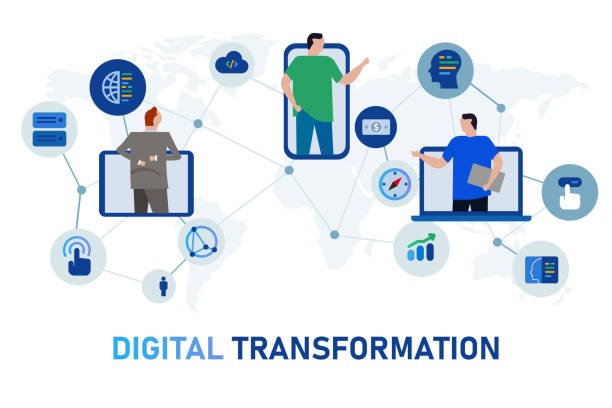Digital technologies have evolved at such a high rate that the world has been referred to as a global village, and humanity as being in a digital age. In this digital age, technology has become an indispensable tool for driving social change. Non-Governmental Organizations (NGOs), being at the centre of societal change, need digital technologies more than ever to provide sustainable development. NGOs therefore are increasingly harnessing the power of digital technologies to amplify their efforts and achieve greater social impact. So how are these digital technologies empowering NGOs for sustainable development?
Contents
How Digital Technologies Empower NGOs
1. Enhancing Communication and Outreach
Digital technologies have revolutionized communication channels, enabling NGOs to connect with stakeholders more effectively. Social media platforms provide a cost-efficient means to engage with supporters, share updates, and raise awareness about social issues. Platforms like Facebook and Twitter have the power to reach wide and diverse audiences because of their widespread adoption. NGOs can leverage these platforms to cultivate communities, inspire action, and foster dialogue. Additionally, digital tools like websites, blogs, and email newsletters enable NGOs to disseminate information, mobilize volunteers, and build stronger relationships with their target audiences.
2. Leveraging Data for Informed Decision Making
Data is a powerful resource that NGOs can utilize to drive evidence-based decision making. Digital technologies enable NGOs to collect, analyze, and interpret data related to their operations, impact, and the communities they serve. Analytics tools like Meta Business Manager and Google Analytics can provide NGOs with data on priority areas for interventions. NGOs can therefore gain valuable insights into their programs, identify areas for improvement, and measure the effectiveness of their initiatives. Data-driven decision making allows NGOs to allocate resources more efficiently and maximize the impact of their interventions.
3. Empowering Grassroots Movements
Digital technologies provide a platform for grassroots movements to flourish. Grassroots campaigns the world over leveraged some form of communication technology (primitive or not) to spread information. Digital communication technologies are therefore ever more important. Through social media campaigns, online petitions, and crowdfunding platforms, NGOs can amplify the voices of marginalized communities and mobilize support for their causes. The power of digital platforms to connect people from different geographical locations and facilitate collaboration has enabled grassroots movements to garner global attention and effect change on a larger scale. Digital technologies have democratized activism, empowering individuals to become agents of social transformation.
4. Innovative Fundraising Strategies
Online crowdfunding platforms provide an accessible way for NGOs to raise funds from a diverse pool of donors. Through compelling storytelling, impactful visuals, and transparent reporting, NGOs can engage potential donors and inspire them to contribute to their causes. Digital payment systems have also simplified and expedited the donation process, making it more convenient for supporters to contribute. Furthermore, digital technologies enable NGOs to leverage social media campaigns and virtual events to expand their reach and attract new donors.
5. Improving Efficiency and Operational Effectiveness
Digital technologies streamline operational processes within NGOs, improving efficiency and effectiveness. Cloud-based collaboration tools facilitate remote teamwork, enabling NGOs to work seamlessly across locations and time zones. Digital project management systems enhance coordination, ensuring smooth implementation of programs and initiatives. Furthermore, digital tools automate administrative tasks, freeing up valuable time and resources that can be redirected towards core activities. By embracing digital technologies, NGOs can optimize their internal operations, allowing them to focus more on achieving their social mission.
Read: Top four Basic Digital Skills You need Today
Essential Digital Literacy Skills for NGO Staff
Digital literacy skills are crucial for NGOs to navigate the digital landscape and effectively utilize digital technologies for their operations and impact. Here are some essential digital literacy skills that NGO staff can harness to realize the fruits of digital transformation:
1. Basic Computer Skills
NGO professionals should possess fundamental computer skills, including proficiency in operating systems, file management, and using common software applications like word processors, spreadsheets, and presentation tools. These skills form the foundation for working with digital tools and technologies.
NGO personnel need to be adept at navigating the internet, conducting online research, and effectively utilizing search engines and online databases. They should understand how to evaluate the credibility and reliability of online sources, ensuring that the information gathered is accurate and trustworthy.
3. Digital Communication
NGOs rely on various digital communication channels to interact with stakeholders, donors, and beneficiaries. Proficiency in email etiquette, online messaging platforms, and video conferencing tools is crucial for effective communication. Understanding how to use these tools efficiently and professionally enables NGOs to build strong relationships and engage with their audiences.
4. Social Media Management
NGOs can leverage social media platforms to amplify their message, engage supporters, and raise awareness about their causes. Digital literacy in social media management includes skills like creating and scheduling posts, understanding audience analytics, utilizing hashtags and tagging, and responding to comments and messages. NGOs should also be familiar with best practices for social media content creation and moderation.
5. Data Literacy
Data literacy skills are essential for NGOs to collect, analyze, and interpret data for informed decision making. This includes understanding basic data concepts, utilizing data collection tools, analyzing data using spreadsheets or specialized software, and effectively presenting data through charts, graphs, and visualizations. NGOs should also prioritize data privacy and ethics when handling sensitive information.
6. Online Security and Privacy
NGO professionals must be aware of cybersecurity risks and practice safe online behavior. This involves understanding the importance of strong passwords, being cautious of phishing attempts, using secure online platforms, and protecting sensitive data. Training in cybersecurity best practices can help mitigate the risk of data breaches and protect the organization’s digital assets.
7. Project Management Tools
Digital project management tools facilitate effective planning, collaboration, and task management within NGOs. Familiarity with project management software and tools such as Trello, Asana, or Basecamp enables NGOs to streamline workflows, allocate resources efficiently, and ensure timely project completion.
8. Digital Fundraising
NGOs can leverage digital platforms for fundraising campaigns and donor engagement. Understanding online fundraising platforms, creating compelling fundraising campaigns, and utilizing email marketing tools are essential digital literacy skills for NGOs. Proficiency in online payment systems and donor relationship management software also helps NGOs manage and nurture donor relationships effectively.
9. Website Management
NGOs often rely on websites to share information, engage audiences, and showcase their impact. Basic skills in website management, including content creation, updating, and utilizing content management systems (CMS) like WordPress or Drupal, empower NGOs to maintain an informative and user-friendly online presence.
Also Read: How to Bridge the Digital Skills Gap
Conclusion
Digital technologies have emerged as a game-changer for NGOs, empowering them to drive social impact on a larger scale. From communication and outreach to data-driven decision making, fundraising, and operational efficiency, digital technologies offer an array of tools and opportunities for NGOs to advance their causes and make a difference in the world. Embracing digital innovation allows NGOs to expand their reach, engage with supporters, and leverage data to enhance the effectiveness of their programs. As technology continues to evolve, NGOs must stay adaptive and agile to leverage the full potential of digital technologies in their pursuit of a better and more equitable world.
How IRES Helps You Reap the Benefits of Digital Technologies
In today’s connected economy, organizations and employees that harness the power of digital technologies through strong digital skills usually fare much better in the competitive job market. Indepth Research Institute (IRES) offers corporate training programs on digital technologies that are prized by employers worldwide. These programs would not only help you in your professional endeavors but also help you make impactful changes in the society. With over 5000 alumni in over 100 training locations worldwide, our programs have helped create sustainable development in the community. Sign up and be part of a journey to make the world a better place one training at a time!
We have a firm belief that every organization has a unique purpose only they can fulfil in this world. We work with you in organizing your resources to exploit opportunities so that you can fulfil your purpose and realize full potential. We build the capacity of people, processes and systems for organizational success and growth as well as nurturing a thriving ecosystem.
Ready to enhance your skills and boost your career? Explore our corporate training programs now and start your journey to success.









Comment here